Teenagers are not ready for alcohol, which is particularly dangerous for them. Their parents should have zero tolerance for their drinking and never allow them to drink. Teens need to learn ways of avoiding peer pressure to drink.
Those were some of the points made Monday night by Frank Bartolomeo, who’s been a professional counselor for teenagers and a researcher on adolescent development. Bartolomeo talked during a panel discussion Monday night after the audience saw the documentary “Haze” about the dangers of teen and young adult binge drinking.
Frank Bartolomeo, Ph.D is director of behavioral health services at Southfield Center for Development in Darien and a member of the Thriving Youth Task Force. Monday night’s panel was one of several Bartolomeo has been a part of where parenting, teenage substance abuse and similar topics have been discussed. (He’ll be on another panel in New Canaan next week about opiate addiction.)
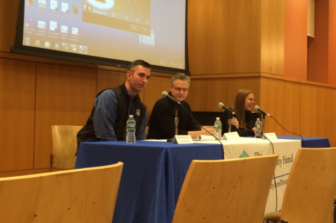
The panelists Monday night who spoke about teenage drinking. From left: Darien Police Detective James Palmieri, Frank Bartolomeo of Southfield Center for Development and Emily DeLeo, a Darien High School graduate.
His comments on the panel were in response to questions asked by organizers of the event and from the audience. Each response is separated from the others below with horizontal lines. In some cases below, we’ve omitted the questions. We’re publishing them here, nearly in full.
(We’ve already published comments from the same event by former Darien High School Resource Officer James Palmieri of Darien Police Department and Suzanne Denunzio, a Darien mother who knew the family of the teen who was the subject of the “Haze” documentary.)
Here’s what Bartolomeo said at the meeting:
Children start getting messages about substance abuse […] a lot through television, the behavior of parents.
There’s an indication that by the time a child is a toddler, they’ve incorporated some messages already about their parents’ use of substances, just from watching.
That’s certainly true of cigarette smoking, and certainly alcohol use.
_________
Question: How can we teach our children to let us know about friends who are engaging in risky behaviors without or kids feeling like they’re ratting their friends out?
Answer:
Teenagers have a wonderful quality, and that is that you’re tremendously loyal to your friends. So what you see there is really the dark side of that loyalty: When you’re so loyal that you don’t want to get a friend in trouble, and it costs someone their life.
So part of it is really defining or redefining what you mean as a “friend.”
Is a friend someone who holds you to be your best self? Or are you so loyal […] that you keep protecting, protecting, protecting? That’s the kind of consequence that occurs. So it’s the dark side of a really terrific virtue.
____________
There’s a reason why teenagers are so susceptible to over-drinking. So, you probably all have heard by now that the adolescent brain is under construction and alcohol and other substances affect the adolescent brain differently than it does mine, and the adolescent brain does not have the cutoff switch yet to know when we’ve had too much to drink.
See also:
- OurDarien.com — micro-website from the Thriving Youth Initiative of the Community Fund of Darien (also on Facebook and Instagram)
So it’s very easy — and why teenagers often die from alcohol poisoning or drinking themselves literally to death. […] Alcohol is a depressant. The affect on your central nervous system is that it depresses it. When you consume that amount of alcohol [in binge drinking] […] it can cause your heart to shut off, and you’re more vulnerable to that than someone past 25 years of age. I’m just saying your body may not tell you when you’ve had enough.
____________
Question: How do you best prepare your children for the freedom that comes with college, so they’re empowered and ready to make good decisions?
Answer:
You know, one of the things we miss when asking kids not to drink is: What’s one of the reasons why they do it?
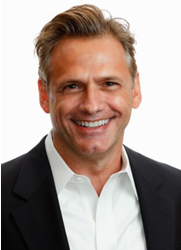
From thePhoto from the Southfield Center for Development website
Dr. Frank Bartolomeo
And as human beings, particularly in adolescence, the need for belonging is so profound that it increases the drive on one hand to do almost anything to belong, and unfortunately in our culture, a lot of high status groups in high school and college drink, so oftentimes the dilemma that an adolescent or college person is faced with is, “What do I do with this need for belonging, for status, and what if that involves having to drink?”
So, sometimes when people make choices not to have alcohol, there is a social cost to it. I understand in working with lots of adolescents, once they make a commitment not to use, sometimes they stop getting invited to parties. Now they have to deal with loneliness and isolation and not feeling, perhaps not belonging in a high status group. That’s a real dilemma.
And so I think we have to prepare our children for this possibility that sometimes doing the right thing is a lonely thing.
______________
Question: If our kids ask us if we drank in high school or in college, how is a parent supposed to answer that?
Answer:
I think in part my answer would depend on what the spirit [was] in which the question was asked.
After having spent 25 years really working and trying to understand the adolescent mind, I know that sometimes they’re looking for an answer, and if you give a kind of affirmative “Yes, I used. I did this, this and this,” the adolescent mind is really good at turning that into, “Well, I can do it, too.”
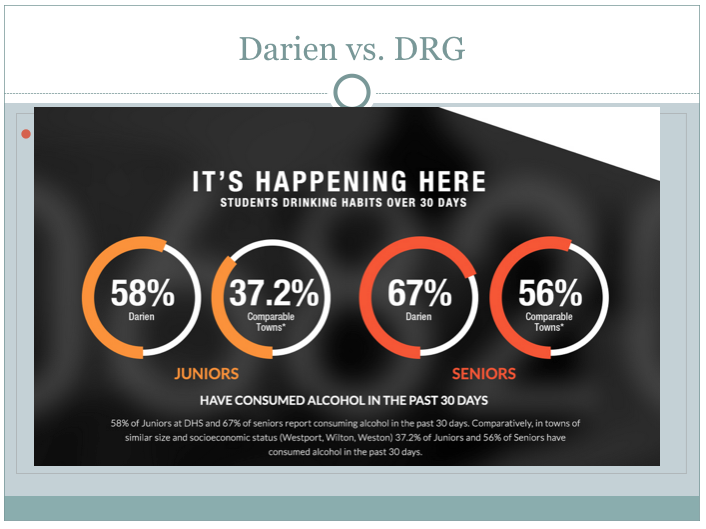
And if you say, “No, absolutely not. I haven’t done that,” then they mistrust. So I certainly do not get into details about use during adolescence, but I also try to emphasize that the knowledge base is different.
We didn’t know some of this stuff 20 years ago. Some of this stuff has only come with the advances in neuroscience and the ability to [look deep] within the brain. We didn’t know 25 years ago that the adolescent brain was under construction. So there was a [leap] that by the time you were 25-26 years of age your brain was pretty much fully developed. So the science is different now. We didn’t know that alcohol affects the brain [in different ways] for adolescents than [for] adults.
So what has to sort of catch up is that the science has to be more integrated with popular knowledge.
See also, Bartolomeo’s commentary: Parents Need to Make Clear to Teens That Drinking Is Unacceptable (Feb. 7)
And we have an example of where this happened: Not that long ago, cigarette smoking was highly prevalent in our culture. Doctors smoked. You could go anywhere. They smoked on airplanes. We changed public consciousness about smoking and, in that case, you actually had cigarette companies suppressing scientific knowledge of how harmful it was.
But we had a sea change in our cultural attitudes about smoking, and we need something similar to that around adolescent or teen alcohol use.
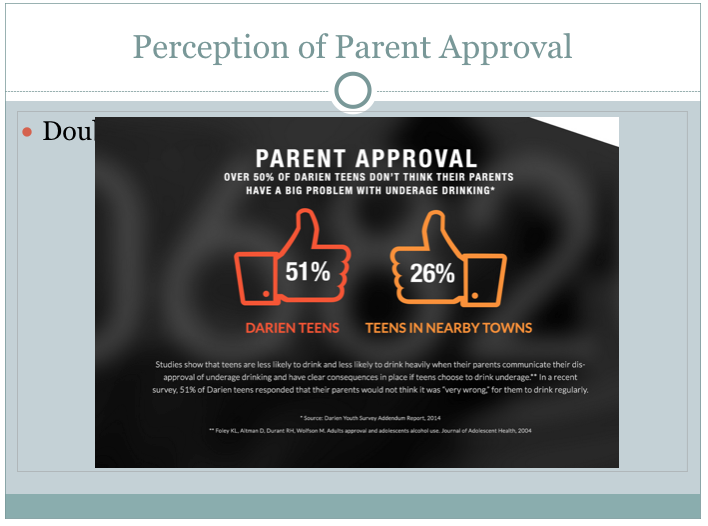
I never get parents saying to me, “Jeez, I really think it’s a good thing our child is experimenting with cigarette smoking.” In fact, I’ll see some parents react more strongly to that than to alcohol use.
So that’s an example of where there was a huge change in our cultural consciousness around a really deadly pathogen, and we know that the adolescent brain is much more vulnerable to becoming addicted to substances like nicotine, alcohol and other drugs. That’s part of the reason why they [cigarettes] were marketed to young people.
_______________
Question: Do you have any successful strategies around that conversation for — you know, it seems unrealistic at least in Darien to say “Promise me you won’t drink in high school for four years. It just seems unrealistic. […] Is there sort of a middle-ground conversation? […] Kids will be kids […]
Answer:
You probably won’t appreciate this answer, but I think there has to be a zero tolerance message. I have not met an adolescent yet who heard that they could experiment, or “this is realistic” […] and didn’t take that as a sign “I’ve got a green light.”
And then what tends to happen is, when you open that door, and kids start using, then parents get really in a pickle because then they [wrestle with the question], “How much is too much?”
Like this article? …
- Sign up for the Darienite.com weekday newsletter.
- Like and follow Darienite.com on Facebook.
- Follow Darienite.com on Twitter.
So I’m in a position of […] black and white, and the position I took with my own children was “When you go to a party, you tell them that your father’s crazy and that he’s going to drug test me or give me a breathalyzer when I get home.”
I want to give them a face-saving way to say “No.” But I believe there has to be a very clear message, because, again, the adolescent brain will find a way to turn that, you know, hedging, into a “Yes.”
So, again, I know that’s not a popular answer, but I think that’s the one that I found.
The middle ground is generally not a place where adolescents reside. […]
____________
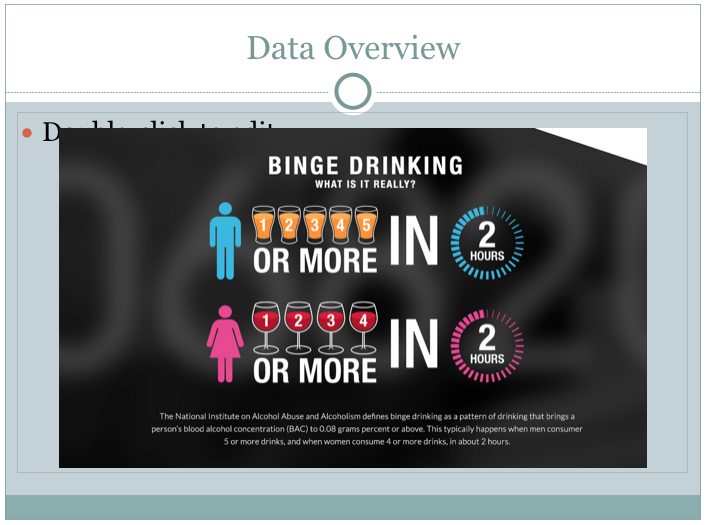
He [Referring to a researcher featured in the documentary, “Haze,” who now works at Duke University] was looking deeply at the adolescent brain and binge drinking, and his argument is that if you’re binge drinking in high school and college, that’s like a self-induced learning disability, because one of the areas that the brain is affected for the adolescent is related to memory and learning. So in some way, you’re handicapping yourself — and that’s only the brain.
Alcohol is a pretty brutal substance for most of the organs of the body. The Centers for Disease Control speculates there’s about 88,000 deaths per year related to alcohol. Some of those are from people who had destroyed their bodies over time. Some of those are related to car accidents, to injuries that happen all the time — homicides occur, suicides are more likely to occur.
_______________
Binge drinking is also connected to views of masculinity — often you see this with sports teams, with how much you can drink, and becoming a right of passage among young men. […]
Cultures occur by one generation passing on things to another, and so when I was a young man, my father took me to football games, and he had his male friends there, and — guess what they did prior to the football game? Drank.
So [in my mind] sporting events […] were associated with drinking. It was just passed on without him explicitly having to say, “This is what men do when we get together.”
So we just absorbed that, and I think the frat house mentality is often this kind of hyper-masculine “let’s see how tough you are; let’s see how bad you are,” by downing 23 shots. And what’s the worst thing for a young man to be called? “He can’t do it.”
And that’s the kind of pressure that’s occurring in these places, and to be able to have the strength at that age to say, “I’m not doing that; this isn’t being a man, to me” — that requires a tremendous amount of strength and sense of self.
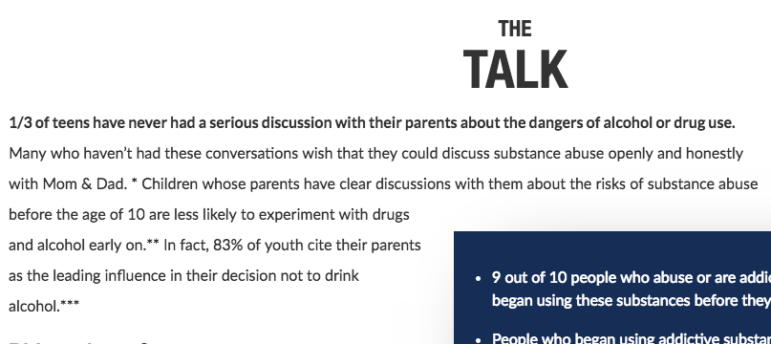
____________
Question: If your friend is drinking too much, what should you as a friend do?
Answer:
It means not letting this dark side of loyalty prevent you from doing the right thing. A friend might be angry if you intervene, but if you save that person’s life, they’ll get over the angry part.
See also:
Binge Drinking Hits Close to Home: Some Things Darien Parents and Teens Should Know (March 6)
Teens Have Died from Binge Drinking in Darien: Police Officer at Panel Discussion (March 9)
What Happens When Darien Police Visit an Under-Age Party with Alcohol (Feb. 21)
DHS Principal Ellen Dunn on Drugs, Drinking, Disciplining Students and What Parents Can Do (Feb. 12)
Panelists: High Rate of Teen Drinking in Darien Comes with High Stress, Lax Attitudes (Feb. 8)
Experts Offer Parents Tips on Building Resiliency, Respecting Kids While Holding Them to Standards (Feb. 19)
Darien Health Dept: How Many of These Risks from Under-Age Drinking Do You Know? (Feb. 19)
Commentary: Parents Need to Make Clear to Teens That Drinking Is Unacceptable (Feb. 7)
‘Truth & Consequences’ Panel Discussion on Teen Drinking at DHS Auditorium (Feb. 7)
Group Launches Campaign to Counter Darien’s ‘Troubling Rate of Teenage Binge Drinking’ (Feb. 2)
DRINKING IN DARIEN: Worse than Elsewhere for Both Teens and Adults — and the Problem is Growing (Jan. 30)

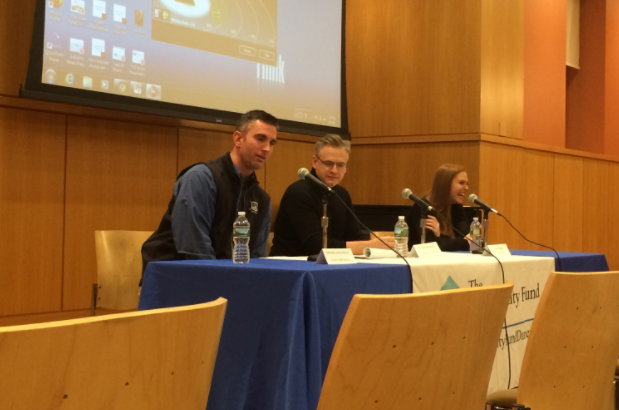

Pingback: Commentary: Think Europe Has the Right Approach to Teen Drinking? Here's Evidence They Don't - DarieniteDarienite
Pingback: Police: Semi-conscious Girl, 16, Taken to Hospital After Teen Party with Booze - DarieniteDarienite
Pingback: When Cops Arrive and Teens Flee Boozy Party, New Haven Line Train Traffic Is Halted - DarieniteDarienite
Pingback: Mother and Daughter Charged After Police Go to Under-Age Party with Alcohol - DarieniteDarienite